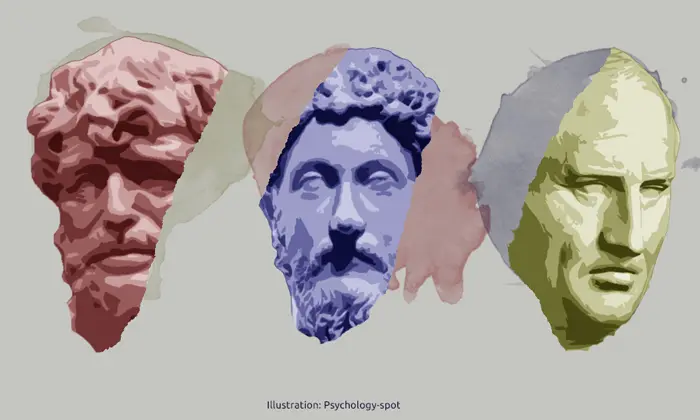
We are not eternal, although we often live as if we were. In fact, in the last decades our society has developed a true phobia of old age and death, which, far from making us happier, plunges us into a loop of frustration, pushing us to pursue unattainable goals. Centuries ago, the social approach was very different. People were very aware of the Latin phrase “memento mori”, which literally means “remember that you must die”. A reminder that could radically change our lives, in a positive sense.
What is the origin of the phrase “memento mori”?
According to the Galileo Galilei Institute in Turin, the origins of this phrase go back to Roman society, which had developed a special sensitivity towards death and life. It is said that it comes from an ancient Roman custom: When a general returned to the city after a great victory over his enemies on the battlefield, he would parade through the streets on a golden chariot receiving the applause and cheers of the crowd.
However, those achievements and praise could make a dent in his “hubris“ leading to a state of pride, excess and arrogance that made him develop a true delusion of omnipotence. To avoid this, a slave – precisely one of the humblest servants – was in charge of reminding him of his human and mortal nature (limited and perishable) whispering to him: “Respice post te. Hominem te memento”, which meant “Look behind, remember that you are a man”.
In that same sense, the phrase “memento mori” was used to remind those great men that regardless of their exploits and glories, the epilogue would be the same for everyone. In this way, when a victorious general was celebrated in procession through the streets of the city, he was also reminded of his death to prevent him from incurring excessive pride.
Remember death to celebrate life
That reminder was not exclusive to the Romans. Many other civilizations made it their own over time. In the 17th century, for example, in the cloistered order of the Trappist friars, they often repeated the phrase “memento mori” to each other and even dug their graves a little each day in order to always keep their death in mind and not lose the meaning of life.
Although at first it may seem gloomy, the truth is that the phrase “memento mori” is an invitation to reflect on the brevity of life and the vanity of human ambitions. Today’s society does not like to think too much about death and prefers to live outside of it because we consider that it is something too depressing or morbid for current sensibility.
However, until the 20th century, remembering one’s own death was not something negative, but rather an encouragement to lead a virtuous, good and meaningful life. Many works of art placed in churches, for example, also recall the theme of death to induce viewers to meditate on the meaning of life.
In the Danse Macabre, a genre that originated in the late Middle Ages but became popular during the Renaissance, skeletons impersonating death danced with people, regardless of class. In this way everyone, from peasants to bishops and emperors, was reminded that worldly enjoyments come to an end and everyone must die.
The hidden meaning of the phrase “memento mori”
The phrase “memento mori”, which is often mistranslated as “remember that you will die”, actually also has another meaning when analyzed in a more correct translation: “remember that you must die”. The difference is subtle but important as it is not only a reminder of our mortality but also an exhortation to prepare for that moment in life.
In fact, it reminds us that we die a little each day, so we must begin to detach ourselves from all banal things and worldly ambitions. That reminder helps us see pleasure and pain with different eyes. It encourages us to leave behind our fears, concerns and doubts. And it pushes us to get rid of the habits that hinder us to go through life with a lighter baggage.
It is no coincidence that the ancient Egyptians – a culture from which the Romans drew – had the tradition of weighing the heart on a psychostasis or balance. On the other plate was placed an ostrich feather, a symbol of the goddess Maat. If the heart outweighed the feather, it meant that person had died guilt-ridden and had done wrong, so he/she would be eaten by Ammit, a mythological beast. Otherwise, it was understood that the deceased had led a righteous life and was prepared to be reborn in the afterlife.
Remembering death encouraged to separate the soul from the mundane heaviness and all the traps that it contains, such as the fact of postponing our goals indefinitely, filling our days with urgent but unimportant things or worrying uselessly about inconsequential issues.
Memento vivere!
The growing tendency of our culture is to deny death in order to live in the illusion that we can stay forever young and that our life goes on forever. Chasing that illusion often means waging a losing fight against time, keeping our minds occupied with trivial matters and chasing after objects that don’t bring true satisfaction.
In this context, remembering from time to time the Latin phrase “memento mori” can become an ode to life. It encourages us to stop wasting our lives pursuing other people’s goals, hoarding material possessions, or worrying about trivial matters. Ultimately, it can motivate us to take that first step to live as we really want, so that at the end of the road we have no regrets. What memento mori really tells us is: memento vivere! (Remember that you must live!)
Sources:
Zaffarano, G. L. (2011) Memento mori. Oltre Magazine; 1.
Ricasoli, C. (2016) Memento Mori’ in Baroque Rome. Studies; 104(416): 456-467.




Y says
I’ve seen many people list “memento mori” in their bio. They believe that life is meaningless, “We’re all gonna die anyway.”
Unfortunately, some of us cannot escape the idea—the loss of our loved ones dug graves in our minds. You wind up aching for them so much you can’t stop yourself from wondering how soon your time will come.
Then you remember, “momento vivere.”
And if at first you can’t do it for yourself, you attempt to do it because your lost loved ones would’ve been grateful for more time here on earth. They would’ve enjoyed the little things, like watching the kids play in the backyard on a Saturday evening. Maybe they would’ve gone skydiving, or white water rafting. You know, knock a few things off the bucket list.
I agree with you, momento mori and momento vivere go hand-in-hand. I think we’ll always need to decide which one would most benefit us focusing on at various times throughout our lives.